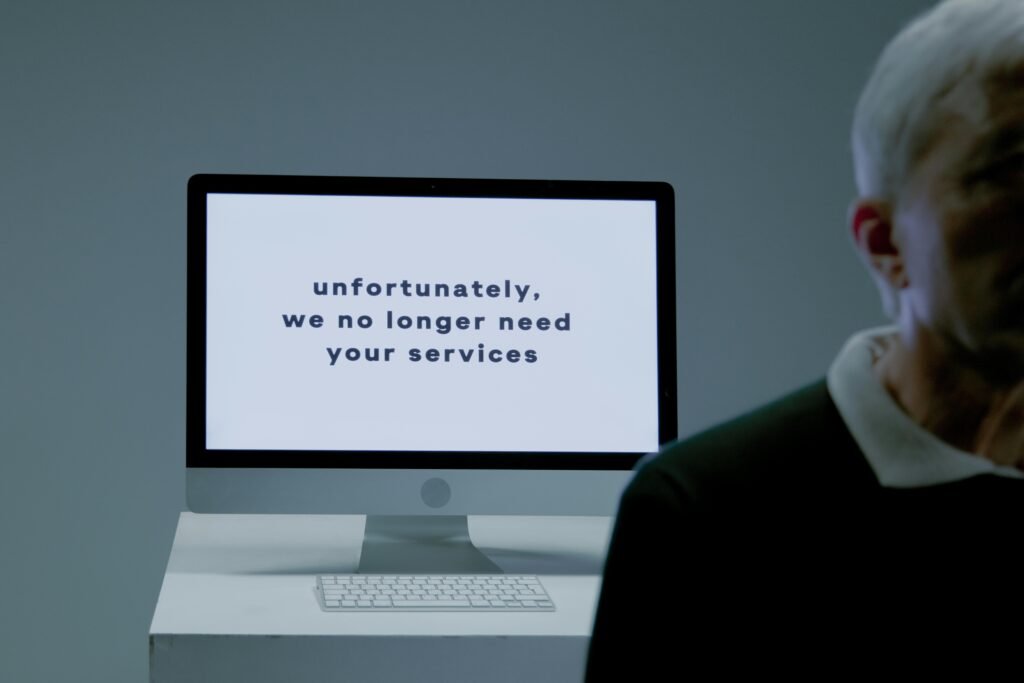
Understanding Mental Resilience
Mental resilience is your inner strength that allows you to face challenges head-on, adapt to new situations, and maintain your focus even when the going gets tough.
In high-pressure work environments, this quality is indispensable.
When you cultivate mental resilience, you’re not just boosting your performance at work, you’re also taking crucial steps to protect your mental well being.
One essential component of mental resilience is self awareness.
This means understanding your own emotions, recognizing when you’re stressed, and knowing how you typically respond to adversity.
When you’re self aware, you’re better equipped to handle stress in a constructive manner.
For instance, if you know that tight deadlines make you anxious, you can develop strategies to manage this stress before it becomes overwhelming.
Another key element is emotional regulation.
This involves managing your emotions so that they don’t interfere with your ability to work effectively.
Techniques like deep breathing, mindfulness, and even simple stretching exercises can help you keep your emotions in check.
For example, taking a few deep breaths before a big presentation can help calm your nerves and improve your performance.
It’s also important to develop a toolkit of strategies that help you maintain balance during stressful situations.
This can include setting realistic goals, breaking tasks into smaller, manageable steps, and prioritizing your workload.
By doing so, you can prevent stress from accumulating and becoming a bigger problem down the line.
Moreover, mental resilience involves a proactive approach to problem solving.
Instead of feeling defeated by obstacles, resilient individuals look for solutions and take action.
This proactive mindset can make a significant difference in high stress jobs where challenges are a daily occurrence.
For instance, if a project hits a roadblock, instead of panicking, take a step back, assess the situation, and brainstorm possible solutions.
Another aspect of mental resilience is maintaining a healthy work life balance.
It’s easy to get caught up in work, especially in demanding careers, but it’s crucial to set boundaries and take time for yourself.
This could mean scheduling regular breaks throughout your day, making time for hobbies, or simply ensuring you get enough rest.
Finally, mental resilience is about staying motivated and focused on your long term goals.
When you’re clear about what you want to achieve, it’s easier to stay committed and push through tough times.
Whether it’s advancing in your career or mastering a new skill, having a clear vision of your goals can provide the motivation you need to persevere.
Understanding and developing mental resilience can transform how you handle stress at work, leading to better performance and improved mental health.
By focusing on self awareness, emotional regulation, proactive problem solving, maintaining balance, and staying motivated, you can build the mental resilience needed to thrive in high-pressure environments.
Recognizing Stress Triggers

Stress triggers in high pressure work environments can vary greatly, but some common culprits include tight deadlines, high expectations, and heavy workloads.
These factors can significantly impact job performance, productivity, and even your overall well being.
According to the Centers for Disease Control and Prevention, workplace stress can negatively impact job performance, productivity, engagement, communication, and even daily functioning.
Personally, I’ve faced these stressors firsthand.
For example, during a crucial project deadline, I found myself overwhelmed by the sheer volume of tasks.
This feeling of being swamped can make even the most dedicated professional feel stuck.
By recognizing these stress triggers, I learned to manage them better over time.
Understanding your specific triggers is the first step in managing workplace stress effectively.
It’s also noteworthy that 83% of U.S. workers suffer from work-related stress, with more than half stating that it affects their home life.
Additionally, about 65% of workers characterize their jobs as a significant source of stress.
These statistics highlight how common and pervasive work related stress is, making it all the more important to recognize and address your own stress triggers.
High expectations, whether self imposed or from management, can also be a significant stressor.
The pressure to perform at an exceptionally high level can lead to burnout if not managed properly.
For instance, you might feel the need to consistently exceed your goals, which can create a cycle of escalating stress and diminishing returns.
Recognizing this pattern allows you to set more realistic and attainable goals, alleviating some of the pressure.
Heavy workloads are another major stress trigger.
When you’re constantly juggling multiple tasks and responsibilities, it’s easy to feel overwhelmed.
This can lead to mistakes, decreased productivity, and a sense of constant anxiety.
By identifying when your workload is becoming too much to handle, you can take steps to delegate tasks, prioritize your responsibilities, and seek support from your team or manager.
Another often overlooked stress trigger is poor communication.
Misunderstandings and lack of clarity can lead to confusion and increased stress.
Ensuring clear and open lines of communication can help mitigate this issue.
For example, regular check-ins with your team or manager can provide the clarity needed to reduce stress and improve workflow.
Developing Coping Strategies

Effective coping strategies are vital for managing stress.
Techniques such as mindfulness and meditation can help center your thoughts and calm your mind.
Taking regular breaks and ensuring time off are equally important, as they allow you to recharge and maintain productivity.
Research shows that for every dollar spent on addressing mental health concerns, employers see a fourfold return in productivity gains.
This underscores the value of investing in personal well being.
One powerful coping strategy is mindfulness.
By focusing on the present moment, mindfulness can help reduce anxiety and improve your concentration.
Start by setting aside a few minutes each day to practice mindfulness exercises, such as deep breathing or body scanning.
These techniques can help you stay grounded and keep stress from taking over.
Meditation is another effective way to manage stress.
It doesn’t have to be a lengthy process; even a few minutes of meditation can make a significant difference.
Find a quiet space, close your eyes, and focus on your breath.
This simple practice can help clear your mind and provide a sense of calm.
Incorporating physical activity into your daily routine can also be a great stress reliever.
Exercise releases endorphins, which are natural mood lifters.
Whether it’s a brisk walk, a gym session, or even a quick stretch at your desk, physical activity can help reduce stress and improve your overall well being.
Another key strategy is to set boundaries.
In high stress jobs, it’s easy to let work spill over into your personal life, leading to burnout.
Establishing clear boundaries between work and personal time can help you maintain balance and reduce stress.
For example, try to avoid checking work emails after hours and make sure to take regular breaks throughout the day.
Time management techniques can also be incredibly helpful.
Prioritize your tasks and break them down into smaller, manageable steps.
This approach can make large projects feel less daunting and help you stay on top of your workload.
Additionally, using tools like calendars and to do lists can help you stay organized and reduce the feeling of being overwhelmed.
Social support is another important aspect of coping with stress.
Connecting with friends, family, or colleagues can provide emotional support and help you feel less isolated.
Don’t hesitate to reach out to someone you trust when you’re feeling stressed or overwhelmed.
Sometimes, simply talking about your challenges can provide relief and a new perspective.
Lastly, make sure to take care of your basic needs.
Getting enough sleep, eating a balanced diet, and staying hydrated are all essential for maintaining your mental and physical health.
When your body is well nourished and rested, you’re better equipped to handle stress and perform at your best.
Building a Support Network

One of the most effective ways to cultivate mental resilience in high stress jobs is to build a robust support network.
Having a strong network of colleagues, mentors, and even friends outside of work can make a significant difference in how you manage workplace stress.
These relationships offer not just practical advice, but also emotional support, which is crucial during challenging times.
Start by identifying colleagues who understand the demands and pressures of your role.
These are the people you can turn to for advice, venting, or simply sharing a laugh to lighten the mood.
Engaging in regular, open conversations with these individuals can help you feel more connected and less isolated.
Remember, you’re not alone in facing these challenges; others are navigating similar waters and can offer valuable insights.
Mentorship is another vital component of a support network.
A mentor can provide guidance, share their own experiences, and offer strategies for handling stress and achieving professional growth.
Don’t hesitate to seek out a mentor within your organization or industry.
Their wisdom can be a powerful resource in developing your mental resilience.
Participating in team-building activities or social events can also strengthen your workplace relationships.
These activities create opportunities to bond with your colleagues in a more relaxed setting, fostering a sense of camaraderie and trust.
This sense of community can be incredibly reassuring, especially during stressful periods.
It’s also important to build relationships outside of work.
Friends and family can provide a different perspective and help you recharge.
Make time to connect with them regularly, whether it’s through a casual coffee catch up, a phone call, or a weekend outing.
These interactions can serve as a valuable counterbalance to the pressures of your professional life.
For those who find it difficult to connect in person, online communities can be a valuable resource.
There are numerous forums, social media groups, and professional networks where you can share your experiences and gain support from others facing similar challenges.
Engaging in these communities can offer a sense of belonging and provide practical advice for managing stress.
In addition, don’t underestimate the power of professional help.
Speaking to a counselor or therapist can provide a safe space to discuss your stressors and develop coping strategies.
Many organizations offer Employee Assistance Programs (EAPs) that provide confidential counseling services.
Utilizing these resources can be a proactive step toward managing stress and building resilience.
Lastly, be willing to offer support to others.
Being there for your colleagues not only strengthens your support network but also fosters a culture of mutual support and understanding.
Sometimes, helping others can provide a sense of purpose and fulfillment, which can, in turn, boost your own mental resilience.
Building a strong support network is an ongoing process, but the benefits are invaluable.
By nurturing these relationships, you create a safety net that can catch you during difficult times and provide the strength needed to face high-pressure work environments.
Cultivating a Positive Mindset

Cultivating a positive mindset can significantly boost your mental resilience at work.
It starts with how you talk to yourself.
Positive self talk can shift your outlook and empower you to tackle challenges head on.
Instead of thinking, “I can’t handle this,” try telling yourself, “I am capable and I will find a way through this.”
This simple yet powerful change can make a huge difference in your ability to cope with stress.
Gratitude is another key element in fostering positivity.
Take a few moments each day to reflect on what you’re thankful for.
Whether it’s a supportive colleague, a successful project, or even a sunny day, acknowledging the good can improve your mood and outlook.
This practice not only enhances your well being but also helps you maintain a balanced perspective when facing stress.
Visualization is another effective technique.
Spend a few minutes each day visualizing your success.
Picture yourself completing tasks efficiently and meeting your goals.
This mental rehearsal can boost your confidence and prepare you for real life challenges.
For example, if you have a big presentation coming up, visualize yourself delivering it flawlessly.
This exercise can reduce anxiety and improve your performance.
Surrounding yourself with positive influences also plays a crucial role.
Engage with colleagues who uplift and inspire you.
Positive interactions can elevate your mood and help you stay focused on your goals.
Additionally, try to limit your exposure to negative news and social media, as these can drain your energy and add to your stress.
Another way to maintain a positive mindset is by celebrating your achievements, no matter how small.
Recognizing your accomplishments can motivate you to keep pushing forward.
Create a success journal where you jot down daily wins.
This practice not only boosts your confidence but also serves as a reminder of your capabilities during tough times.
Focus on solutions rather than problems.
When faced with a challenge, shift your energy toward finding a way forward instead of dwelling on what’s wrong.
This proactive approach can reduce feelings of helplessness and keep you moving in the right direction.
For instance, if a project isn’t going as planned, brainstorm alternative strategies rather than fixating on the obstacles.
Lastly, practice self compassion.
It’s important to be kind to yourself, especially when things don’t go as planned.
Instead of beating yourself up over mistakes, view them as learning opportunities.
This compassionate approach can reduce self induced stress and help you bounce back more quickly.
By implementing these strategies, you can cultivate a positive mindset that empowers you to handle stress effectively and thrive in high pressure work environments.
Adapting to Change

In the dynamic landscape of high stress jobs, the ability to adapt is a vital skill.
Change is inevitable, whether it’s a shift in project scope, new team dynamics, or evolving industry standards.
Embracing these changes with a flexible mindset can significantly reduce stress and position you for success.
First, it’s essential to approach change with an open mind.
Instead of resisting new circumstances, view them as opportunities for growth.
For instance, if your company introduces new software, rather than feeling overwhelmed, consider it a chance to enhance your skills and improve your efficiency.
This proactive attitude can make transitions smoother and less stressful.
Being proactive in seeking solutions is another key aspect of adapting to change.
When faced with new challenges, take the initiative to learn and adapt.
This might involve additional training, seeking advice from more experienced colleagues, or researching best practices.
For example, if your role expands to include new responsibilities, taking the time to learn and master these new tasks can turn potential stress into a valuable learning experience.
Effective communication plays a critical role in navigating change.
Keeping open lines of communication with your team and management ensures that everyone is on the same page.
If you’re uncertain about how changes will impact your role, don’t hesitate to ask questions and seek clarification.
This not only reduces anxiety but also fosters a collaborative environment where everyone can support each other through transitions.
It’s also important to maintain a positive outlook during periods of change.
Focus on the benefits that new developments can bring, both for your personal growth and the organization’s success.
For example, a restructuring might initially seem daunting, but it could also open up opportunities for career advancement or skill development.
Resilience in the face of change often comes down to self care.
Ensure that you’re taking care of your mental and physical well being during periods of transition.
This might include maintaining a healthy work life balance, seeking support from your network, and taking breaks to recharge.
When you’re well rested and mentally sharp, you’re better equipped to handle the demands of change.
Ultimately, embracing change with flexibility, proactive problem solving, and effective communication can transform potential stressors into opportunities for growth.
By cultivating these skills, you can navigate high pressure environments with confidence and resilience.
